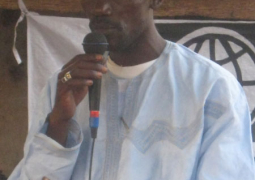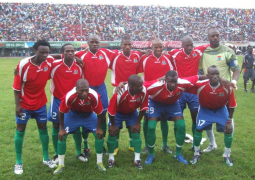The Ministry of Health and Social Welfare, in collaboration with relevant partners, on Monday commemorated the West African Health Organization (WAHO) day at the Paradise Suites Hotel.
The 26th WAHO day was marked under the theme “HIV/AIDS and sustainable development: contribution of the local private sector in the production of Antiretroviral drugs (ARVs)”.
Speaking at the ceremony, Matilda Bouye, permanent secretary at the Ministry of Health and Social Welfare, said meeting the demand for ARVs remains a challenge in most West African countries.
She noted that in 2011 it was estimated that up to two million people in the ECOWAS region were in need of Anti-Retroviral therapy.
“As most countries in the region continue to rely on importation of ARVs and other essential medicines, conscious efforts are being made at the level of WAHO and in consultation with individual member states including The Gambia to encourage and support private sector involvement in the production of Anti-Retroviral Drugs and other medicines,” she said.
About half of the people who should be receiving HIV treatment are not receiving it, she added.
According to her, millions of people needing treatment do not even know they are infected with HIV and close to 70% of people who globally need HIV treatment, but are not receiving it, live in the sub-region.
She added that local production of ARVs and other essential medicines would therefore reduce costs and ensure timely replenishment of stock at all times. Already there are ongoing efforts to encourage the involvement of the private sector in local production of ARVs and other essential medicines in The Gambia, Mrs Bouye says.
She expatiates: “In keeping with this view we must remind ourselves of some of the global and regional commitments and ongoing initiatives in the HIV treatment scale-up, which includes the global plan towards the elimination of new HIV infections among children by 2015 and keeping their mothers alive focusing on eliminating mother to child transmission in the global south as well as keeping mothers alive through full access to treatment, including the most vulnerable treatment for everybody, which means greater systems of accountability for governments and the private sector among others.”
For her part, Fatoumata Jah, deputy Chief Pharmacist, said that about half of these people who should be accessing HIV treatment are receiving it and close to 70% of unmet ART need is in sub-Saharan African.
She explained that many millions of people needing treatment do not know their status, many others who have done HIV test and know they are HIV positive are not able or willing to get on treatment or if they do at some point they stop their medications.
The reasons, she added, are too few facilities offering ART, frequent treatment stock outs or inadequate skilled manpower.
According to Dr Placido M. Cardoso, director general of WAHO, the establishment of emergency stocks of ARVs, as a mechanism to assist countries experiencing stock outs must be related to the local production of drugs and ARVs and seen as a response to the need for investment and development opportunities that will enable the region not only to save foreign exchange but also to improve access to medicines and establish an industrial base for the production of medicines in a sustainable manner.
Speakers at the ceremony included Dr Thomas Sukuwa, WHO country representative, Lamin Sanneh, governor of West Coast Region, Ngaling Abubacarr Sambou, regional health director West Coast Region 2, and Alhagie Saine, regional health director West Coast Region 1.
Read Other Articles In Article (Archive)

WAAPP officials embark on project intervention sites assessment
Sep 7, 2012, 11:31 AM


